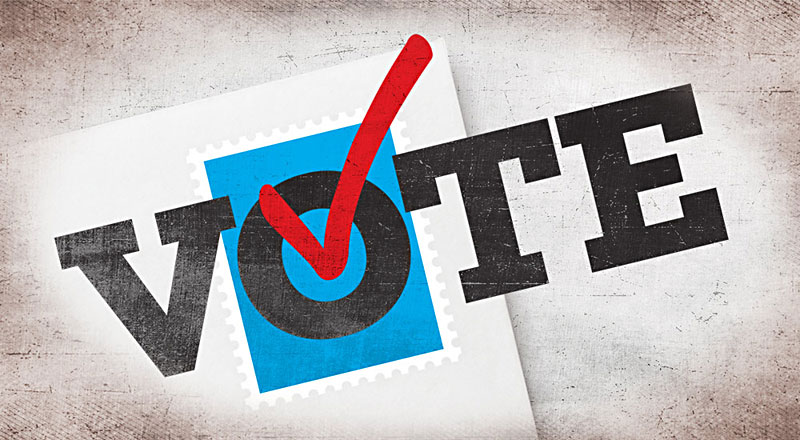Federal Judge Legalizes Texas Vote-by-Mail
Broad ruling says all Texas voters may request mail ballots
By Michael King, Fri., May 22, 2020
In the latest episode of the legal donnybrook over voting by mail in Texas, the arena has shifted to federal court. U.S. District Judge Fred Biery ruled Tuesday that "under pandemic circumstances" all state voters are eligible to request mail ballots and have those ballots counted. Attorney General Ken Paxton said he will immediately appeal to the 5th U.S. Circuit Court of Appeals.
[May 20 update: A panel of the 5th Circuit Court of Appeals today granted an administrative stay of Biery's order, as requested by Attorney General Ken Paxton.]
The ruling came in a lawsuit filed in San Antonio federal court by the Texas Democratic Party and three individual voters, arguing that restricting voting by mail to only certain categories of voters – absentees, those 65 or older, or personally "physically disabled" – in fact violates Texas election law and is an unconstitutional discrimination against younger and minority voters. The state defendants – Gov. Greg Abbott, Secretary of State Ruth Hughs, and (nominally) the election officials of Travis and Bexar Counties – represented by Paxton, argued that the federal court has no jurisdiction and that Texas law legally restricts voting by mail to the limited categories.
Citing the Declaration of Independence and Paxton's own opinions, Judge Biery ruled that given the risk of coronavirus infection, all Texas voters are currently "disabled" under state election law, and therefore eligible to vote by mail-in ballot. Moreover, Biery wrote, "For those who have recently awakened from a Rip Van Winkle sleep, the entire world is mostly without immunity and fearfully disabled."
Accordingly, Judge Biery ruled that any eligible Texas voter can apply to vote by mail, that election officials must accept and tabulate those votes, and that his order must be posted on the websites of election administrators for any elections held "during the pendency of pandemic circumstances." The plaintiffs had asked for an expedited ruling because of the need for officials to begin preparing for the July 14 run-off elections and because conflicting information – including Paxton's repeated threats of "criminal sanctions" – had left voters and officials uncertain of how to proceed.
Although Biery's direct order is only a dozen pages, the entire 74-page document (with appendices) rejects entirely the state's claims and Paxton's public statements that an expansion of VBM either violates state law or would lead to increased voter fraud. Instead, Biery concurs with an April 17 state district court ruling that election law in fact allows this expansion of voting by mail, and as precedents he cites several of Paxton's own previous opinions in which the A.G. asserted that there is "no special definition of 'disability'" in Texas election law. The judge contrasted those opinions with Paxton's recent threats of "criminal sanctions" against officials or voters who might recommend or choose to vote by mail, and thundered, "Such contradictory opinions are at best duplicitous and at worst hypocritical."
Although the state insists that expanding mail voting will increase voter fraud, Biery cites research demonstrating that actual instances of voter fraud are virtually nonexistent, and trivial compared to the current threat of the pandemic. "The Court finds the Grim Reaper's scepter of pandemic disease and death is far more serious than an unsupported fear of voter fraud in this sui generis experience."
Responding to Biery's blistering ruling, Paxton released a terse statement: "The district court's opinion ignores the evidence and disregards well-established law. We will seek immediate review by the Fifth Circuit Court of Appeals." Biery's order presumably renders moot Paxton's request to the Texas Supreme Court (scheduled for a hearing Wednesday) to overrule the earlier state district court order (sustained by the 14th Court of Appeals) allowing universal vote-by-mail.
TDP Chair Gilberto Hinojosa issued a statement reading in part, "Judge Biery put it best: 'One's right to vote should not be elusively based on the whims of nature. Citizens should have the option to choose voting by letter carrier versus voting with disease carriers.'
"Today is a victory for all Texans. The right to vote is central to our democracy. This ruling means eligible voters can vote by mail during this pandemic. It is time for a few state officers to stop trying to force people to expose themselves to COVID-19 in order to vote. ... Voting by mail is safe, secure, and accessible. It allows more voters to participate, and it's a common sense way to run an election, especially during a public health crisis."
Got something to say on the subject? Send a letter to the editor.









